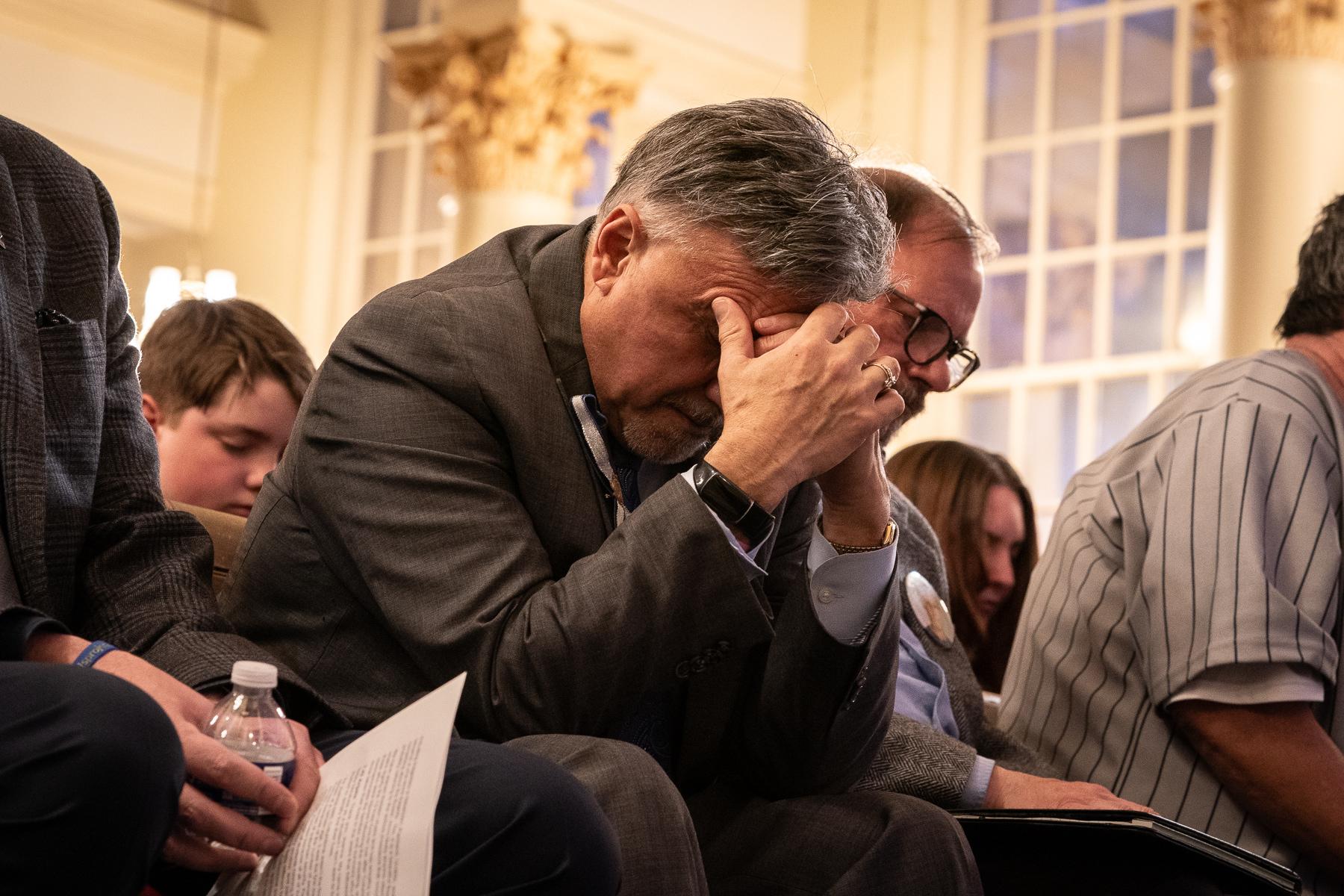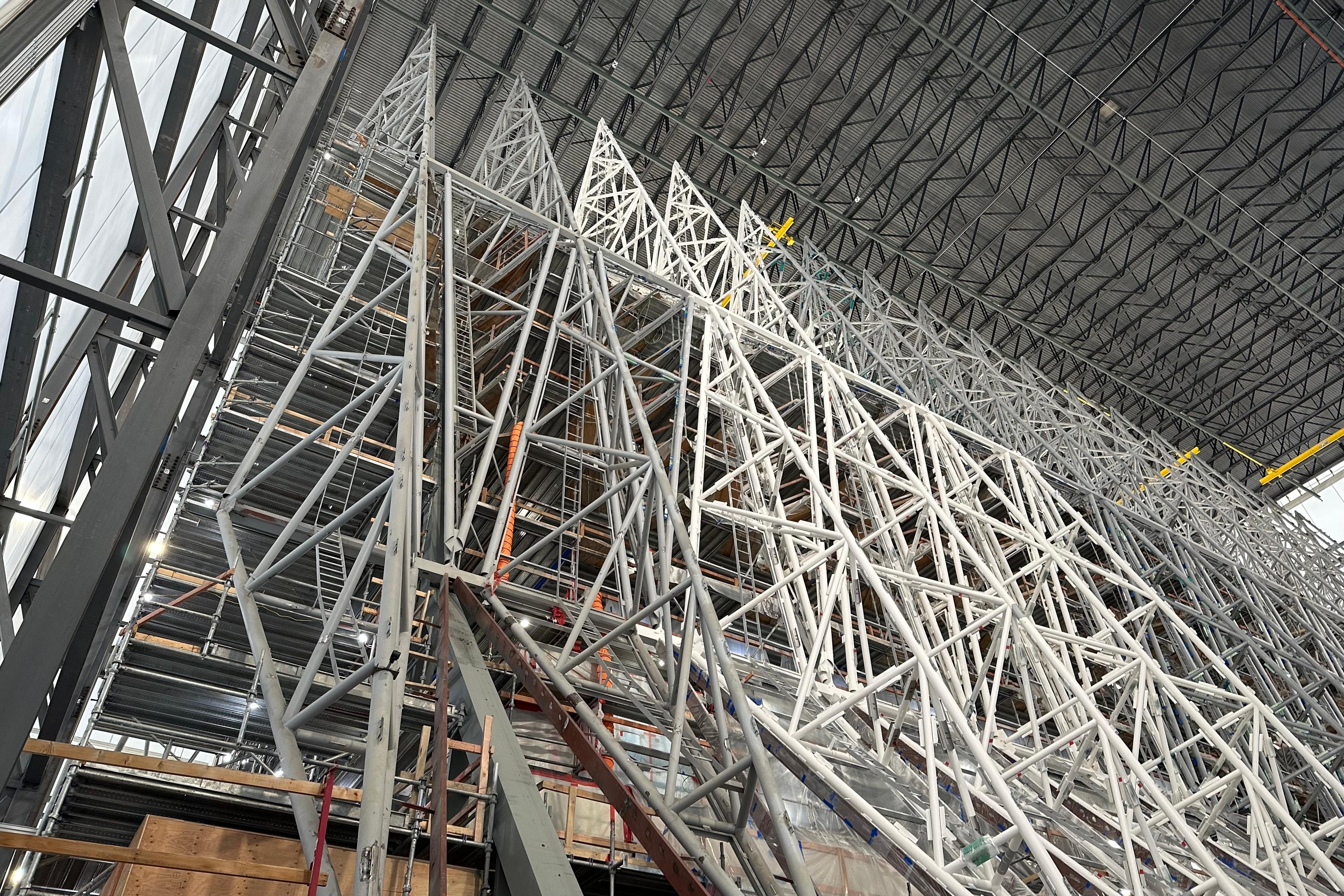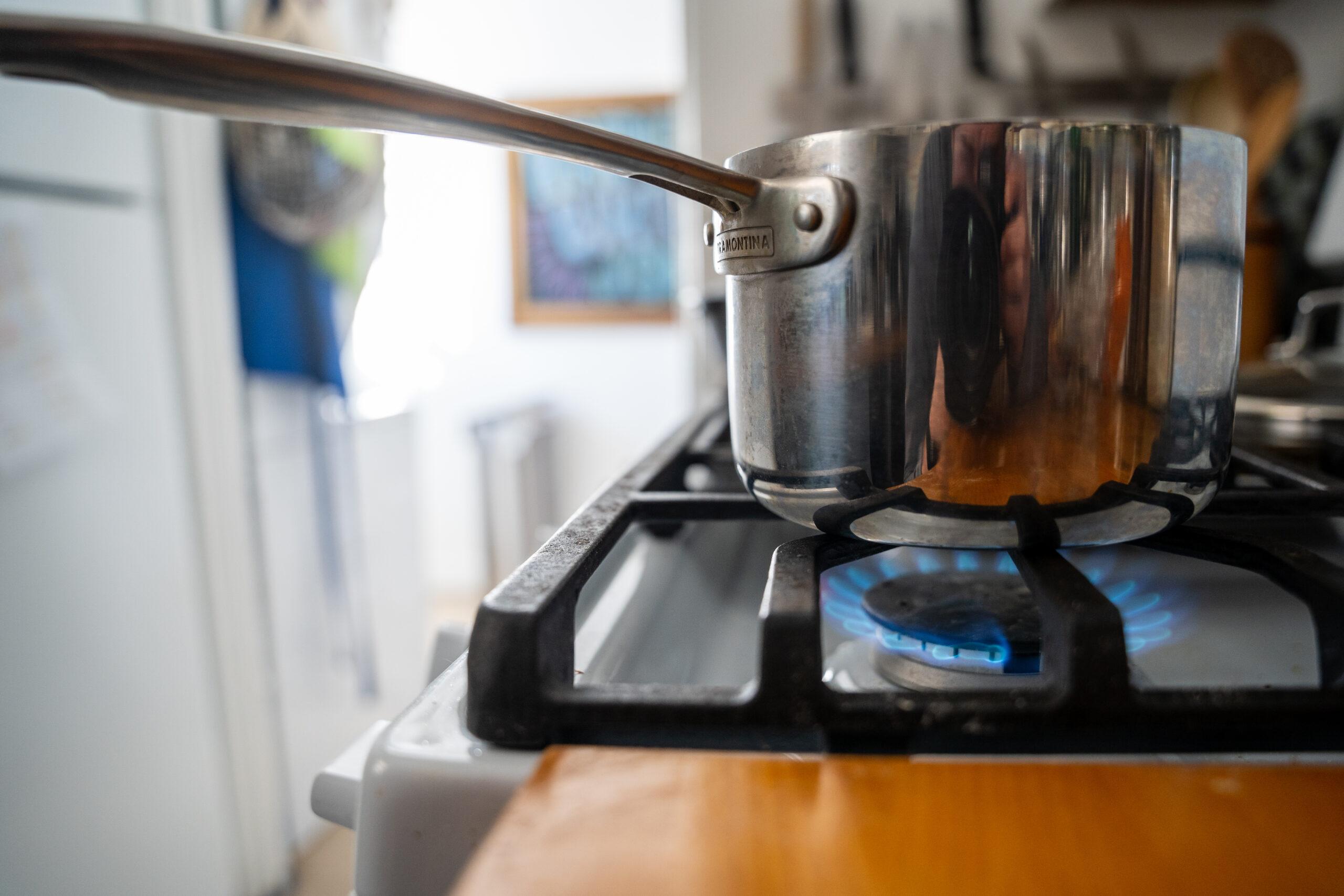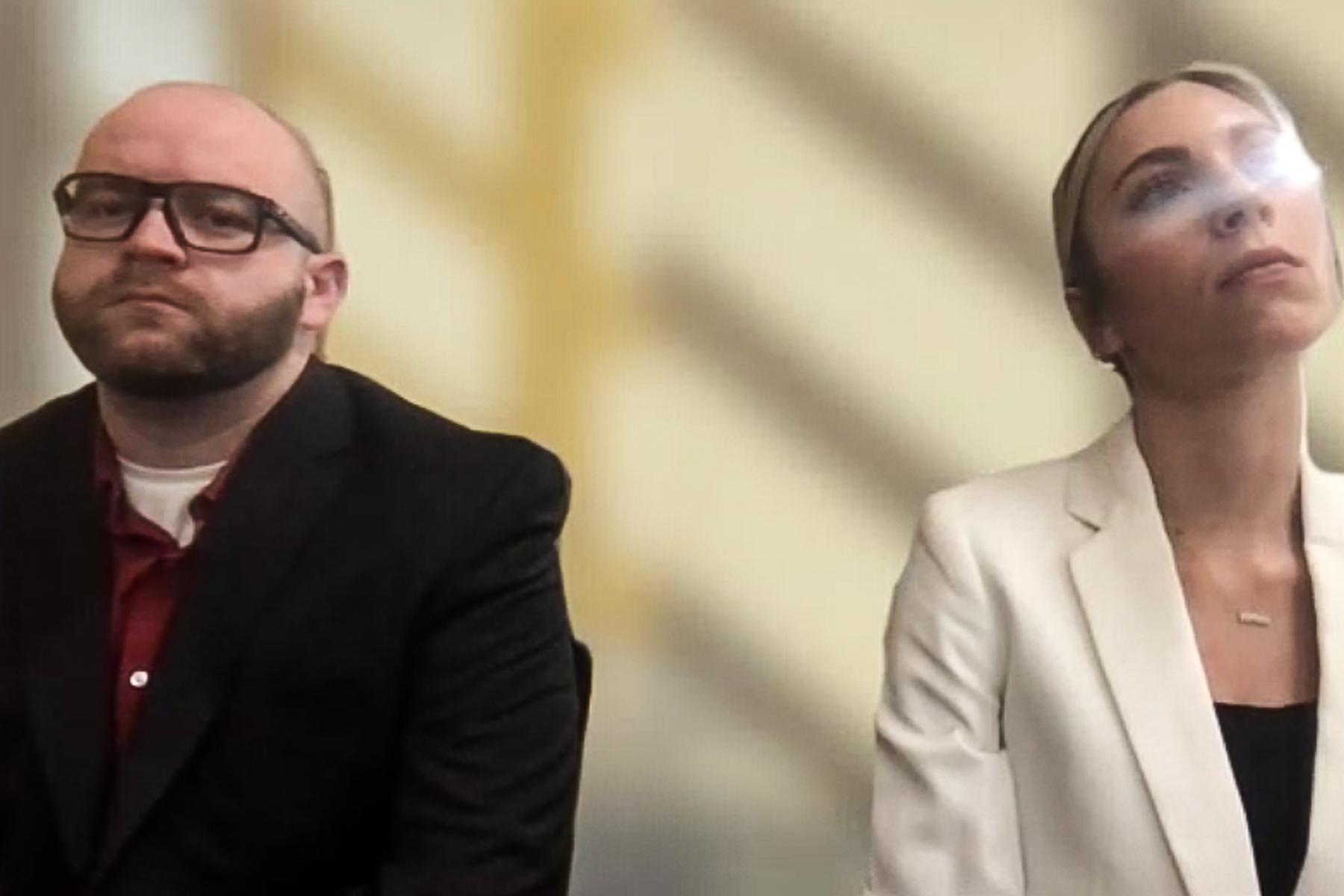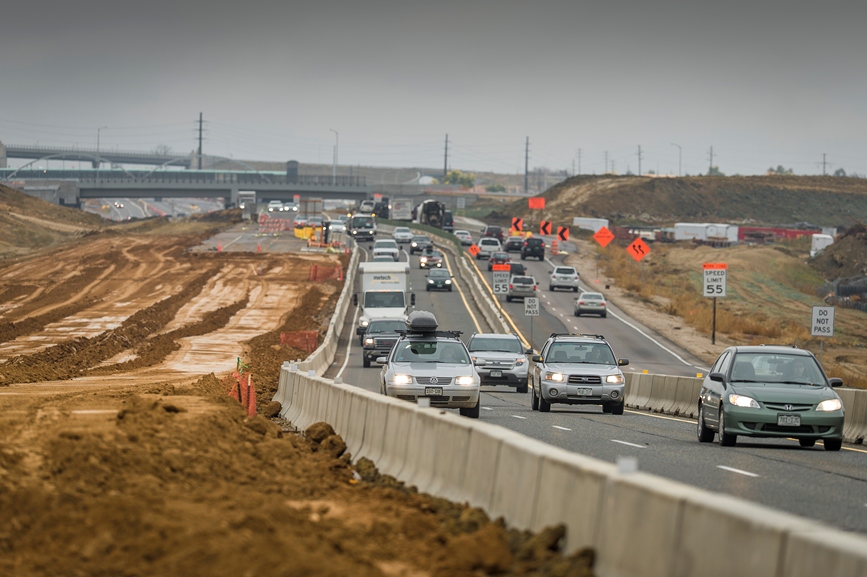
Worn out roads and bridges in Colorado cost businesses time and money, according to the Denver Metro Chamber of Commerce. So it plans to lead a campaign to raise the sales tax to pay for transportation infrastructure improvements.
Tax increases in Colorado require voter approval, and Chamber President Kelly Brough tells Colorado Matters her group aims to put a tax measure on the ballot in 2018. She does not yet know how big of an increase they will ask for.
The U.S. Department of Transportation estimates each Coloradan spends an extra $287 a year on average on repairs and operating costs due to driving on roads that need to be fixed. But while there's broad agreement in Colorado that more money should be put towards transportation infrastructure, there isn't agreement on whether that requires a tax increase.
A state legislature committee decided not to refer a tax measure to voters this past spring, and the Chamber's proposal may compete with another proposed ballot measure that would force lawmakers to take money from other state programs to put it towards transportation.
Read The Transcript:
Ryan Warner: This is Colorado Matters from the CPR News I'm Ryan Warner. Some business leaders in this state say they're desperate for road and bridge improvements and more public transit. So the Denver Metro Chamber of Commerce will lead a campaign to raise the state’s sales tax. It would go before voters next year. Chamber president, Kelly Brough joins me from her office and a welcome to the program. Kelly Brough: Thanks for having us. RW: If history is any indication this will be an uphill battle. Voters have only passed two state wide tax increases in 25 years and they were both for sin taxes, on cigarettes and marijuana. Why is it so important to you and the businesses your represent to have more money for transportation? KB: No, I think we're like every other Coloradan, our members are noticing the impact of the congestion on our roads. Not just in the metro area but throughout the state and it's costing them real money. We did a study, as a matter of fact, that showed Coloradans are collectively paying about $6.8 billion dollars a year in personal costs because of the time, the added time, and just the cost of sitting in traffic and congestion. RW: Is that just lost productivity, what? KB: Yes, so the estimate is as much as 50 hours a year in lost time. It's thousands of dollars in increased use of gas because you're sitting in traffic, in more accidents. RW: But, meanwhile, the U.S. Department of Transportation estimates it costs each Coloradan more than $250 a year in repairs, for example, driving on roads that need fixing. What does this mean for businesses? Take me into some of the conversations you've had. KB: Well, for businesses there's two perspectives. If you're moving goods or you have to get someplace, it just takes longer and it's more expensive for you as well. But, also, the workers in Colorado work for companies and so workers spending more and more time on roads trying to get to work or get home concerns employers, too. RW: As a quality of life issue to attract employees, I guess. KB: That's exactly... RW: So have you heard from companies that say we'd get better workers or more of them if the roads were better? Is it that direct? KB: No. I don't think what's happening is so much that as it is companies recognizing it's costing us more to conduct our business here and it's affecting the quality of life of everybody in Colorado and with simple investments we could change that. RW: So you haven't heard from a company like Amazon, for instance, that says "We won't come there because of the roads."? KB: Right. I will give you an example. We have had companies who've come because of the investments that we have made in our transportation system. In the metro area we've seen the investment that our residents made in transit really changed some companies' decision to come here and it certainly changes workers decisions who want to come to Colorado. RW: Who came to Colorado because of light rail or commuter rail? KB: Well, most recently you would hear, well, actually, Amazon is a great example in this regard. In their proposal they say specifically you have to be within a certain distance. It has to have a transit system for them and, in that case, they're really focused on both rail but also bus rapid transit. We've had other companies like DaVita who made a choice about their physical location based on being close to transit so it's very common. RW: So transit is one thing but to roads and bridges, I suppose, there are some who would say you can't build your way out of congestion in terms of more highways. So is this a bit of a false promise to say, hey, spend more money on transportation and congestion will ease. It seems like the more you build the more it just gets crowded. KB: Right, so Ryan, I think your assumption is that this means we're going to build more lanes throughout the state and the Colorado Department of Transportation has a $6 billion project list. I think the assumption is that a lot of those projects that are established by CDOT on a list that voters would be approving can maybe not at all be about expanding or adding a lane but could be much more about maintaining what is already there that needs to be improved or about technology; how you can make new investments that make that same roadway much more efficient or useable which could, of course, include our future of autonomous vehicles or driverless cars. RW: And would voters, as they're casting a ballot, would they have a list of specific projects? KB: They would voters would know exactly what statewide projects CDOT would be able to fund and they would also know exactly how much money they could expect their community to get that their local priorities could guide. So one of the big issues we've heard in rural Colorado is making sure seniors are able to get to doctors’ appointments. RW: How much are you going to seek, by the way, what kind of a sales tax increase? KB: We focused on sales tax for a few reasons. One is it also means visitors help pay and we think visitors to our state should help pay for the cost of our infrastructure and our roads. We don't have a final number of what it will look like. We're working with the Colorado Department of Transportation and the State of Colorado to really understand what are the most critical investments. RW: What have you heard from businesses, if anything, who are opposed to raising taxes to do this and who think that the state has enough money as it is and should just reprioritize? KB: You know, Ryan, at the Chamber we have about 3,000 members and we have overwhelming support from our members to do this. And so while we recognize there are going to naysayers and people who believe the resources are there we really do believe, even at the legislature, we’ve had a very diverse group of legislators who, I believe, if the money that was there they would have funded this long ago. We’re confident that we're not asking voters for anything that isn't critically necessary. RW: If there's such agreement why wouldn't the legislature send a measure to the ballot for voters to vote on? They've tried that in the past but it hasn't succeeded. It's one of the reasons, I assume, the Chamber is going this route. KB: Yeah. I can't really speak to why the legislature didn't get the bill. There was a bill before them this year that our coalition, that we're part of, worked very hard to try to get passed and so instead of analyzing what’s wrong we just decided we, as a community, should take to the ballot and allow the voters to make this decision. RW: You're listening to Colorado Matters. I'm Ryan Warner and I'm joined by the President and CEO of the Denver Metro Chamber of Commerce, Kelly Brough. The Chamber is considering backing a sales tax increase statewide to pay for transportation. What role do businesses play in the congestion? I think of a conversation that I had with a transportation planner who said that every office that provides free parking to its employees is subsidizing the driving of their employees to work and that if there could be increased telecommuting or if, I don't know, you charged an employee for parking there might be more carpooling. Like aren't businesses which demand commutes part of the problem here? KB: Yeah, I mean, the truth is at some point we're probably all commuting no matter how carefully we've tried to pick our home and be close to work. I do think your point of making sure as companies that we're adopting policies that really encourage the behavior we all need to see. And you don't see, certainly downtown, the average parking downtown is around $285 a month. Most of our employers cant afford to pay those kind of costs for their employees and they focus often on can I instead provide an ECO Pass and I think the market helps dictate how quickly we move in one direction or the other. RW: You may be in competition with another ballot measure to fund roads. Conservatives, including at the Independence Institute in Denver want to force lawmakers to reallocate current tax money to put more of it to road improvements and they have suggested cutting some public transit in order to do that as well as subsidies for filmmakers and electric vehicles. How important is transit in your proposal? KB: I think when we think about transit in the business community what we understand is the range of options that it includes and we think that's very important. I think most people think of rail. This money is not going to the Regional Transportation District but it could help fund those kind of mobility services so this could include things like bus service or, as I mentioned earlier, for seniors maybe to get to a doctor's appointment and all of those would fall into that category of mobility services. RW: What am I hearing as the subtext when you say none of this is going to RTD? Is that like a, is that a reassurance to voters who might be ticked off about FasTracks and the current state of light rail and commuter rail? KB: Yeah, and no way do I mean to make it sound like a negative for RTD at all. It's meant to remind people that those are separate political entities and I'm not sure every Coloradan realizes the Colorado Department of Transportation doesn't run FasTracks and so it was to try remind people this is a separate entity and it's a statewide focus. RW: Kelly, thank you for being with us. KB: Thank you so much for having us on. RW: Kelly Brough is president and CEO of the Denver Metro Chamber of Commerce which hopes to land a statewide sales tax increase on next year’s ballot to pay for roads, bridges, and transit. At CPRNews.org we've linked to that alternative proposal; it’s titled Fix our Damn Roads. I'm Ryan Warner this is CPR News. |

